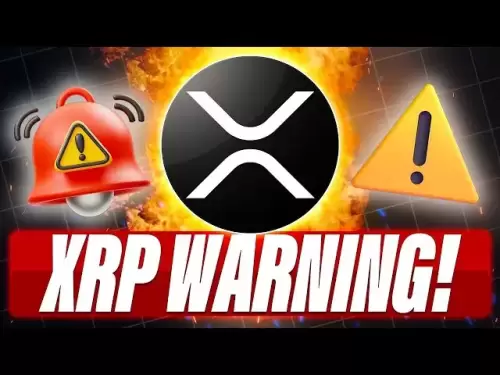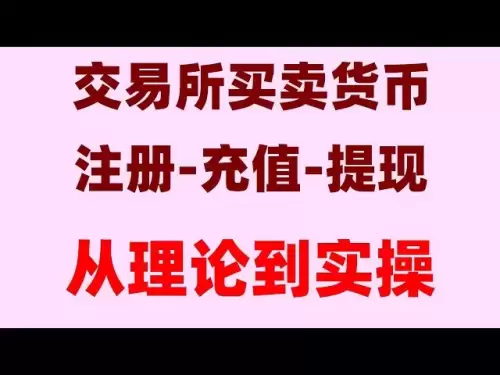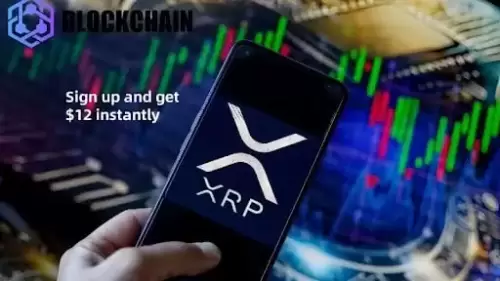 |
|
 |
|
 |
|
 |
|
 |
|
 |
|
 |
|
 |
|
 |
|
 |
|
 |
|
 |
|
 |
|
 |
|
 |
|
Cryptocurrency News Articles
Decentralizing Governance: Exploring the Dynamics and Challenges of Digital Commons and DAOs
May 19, 2025 at 11:46 am
A sweeping new study dissects the evolution, promise, and pitfalls of decentralized governance models, especially those emerging in the blockchain-powered digital commons.

A sweeping new study has dissected the evolution, promise, and pitfalls of decentralized governance models, especially those emerging in the blockchain-powered digital commons. Titled “Decentralizing Governance: Exploring the Dynamics and Challenges of Digital Commons and DAOs” and published in Frontiers in Blockchain, the study examines how Decentralized Autonomous Organizations (DAOs), tokenized decision systems, and algorithmic rule enforcement are transforming democratic participation and potentially replicating the very centralization they aim to dismantle.
Using Elinor Ostrom’s foundational principles of commons governance as a theoretical lens, the paper examines how blockchain tools can improve the regulation of shared digital resources. It presents a global critique of DAO mechanisms, from their financial tokenization structures to their environmental and geopolitical implications, revealing that without thoughtful design and legal clarity, DAOs risk becoming exclusionary, plutocratic, and even neocolonial.
Can blockchain-based DAOs really democratize digital governance?
The study closely examines how decentralized governance systems align with Ostrom’s eight principles for managing common-pool resources. These principles call for locally adaptable rules, collective choice arrangements, monitoring, conflict resolution, and nested governance layers. The paper finds that while blockchain tools like smart contracts, tokenization, and quadratic voting offer scalable self-regulation and transparency, they often fall short in inclusivity and participation.
DAOs such as MakerDAO, MolochDAO, and Commons Stack are cited as examples of decentralized systems that promise participatory governance but often centralize decision-making around early token holders or well-funded delegates. The study highlights how token-weighted voting can quickly devolve into plutocracy, with a small number of large token holders disproportionately influencing governance outcomes. For instance, 53% of DAOs surveyed were found to be largely inactive, with minimal voter turnout as DAO size increased. In Decentraland, average voter participation per proposal was less than 1%.
To mitigate voter apathy and encourage ongoing engagement, mechanisms like delegated voting, employed in MakerDAO and Uniswap, allow users to assign their votes to representatives. However, these often replicate traditional power hierarchies and reduce broader community engagement. Hybrid structures, like the bicameral governance model of the Optimism Collective, combine token-based and representative systems to address these inefficiencies, but the study notes they still risk re-centralizing authority.
What tools exist to mitigate centralization in DAO governance?
To curb centralization and increase equitable participation, the study highlights several innovative governance models:
Quadratic Voting and Funding: Systems like Gitcoin Grants diminish the disproportionate influence of wealthy stakeholders by applying a nonlinear cost to voting power. These models amplify the collective impact of small contributors, closely aligning with Ostrom’s principle of congruent rules and widespread participation. For instance, quadratic voting and funding systems have been instrumental in mobilizing diverse communities around open-source software development and public goods contributions.
Reputation-Based Voting: In contrast to token-weighted systems, this model allocates voting power based on a user’s contributions, actions, and trust score, rewarding long-term engagement over financial investment. It supports rule formalization and monitoring, crucial for Ostrom’s framework. However, this model faces risks like sybil attacks and bias unless it’s integrated with cryptographic identity verification to ensure the authenticity of participants.
Soulbound Tokens (SBTs): These non-transferable tokens serve as proof of participation and reputation within a specific community or initiative. Since they cannot be bought or sold, SBTs align governance influence with meritocratic input rather than wealth accumulation, closely aligning with Ostrom’s principle of legitimacy. However, they also raise concerns about privacy and the need for fair distribution systems to prevent elite capture.
Rotating Governance Councils: By implementing term-limited governance roles and staggered transitions, DAOs can prevent the entrenches of power and introduce diverse perspectives over time. This model closely reflects Ostrom’s principles of accountability and dynamic rule adaptation, varying according to local conditions. It also requires robust mentorship and transition protocols to ensure continuity and knowledge transfer between council members.
The study emphasizes that these mechanisms must be contextually applied and embedded in broader governance frameworks which balance efficiency, transparency, and inclusivity.
The pressing legal, environmental, and ethical challenges faced by DAOs
Despite their innovative promise, DAOs face critical challenges beyond internal governance. Legally, most jurisdictions lack comprehensive frameworks to recognize DAO structures, allocate liability, and define their cross-border operations. The study examines the Wyoming DAO LLC law as an early effort to grant DAOs limited liability personhood, enabling them to own assets, enter contracts, and sue or be sued. However, critics argue that this framework imposes traditional corporate norms on decentralized systems, risking re-centralization and setting the stage for jurisdictional conflicts.
The paper also delves into the environmental footprint of blockchain infrastructure, especially in Proof-of-Work (PoW) systems used by Bitcoin and early Ethereum. Case studies from Chelan County, Washington, and Dresden, New York demonstrate how cryptocurrency mining has strained local energy grids,
Disclaimer:info@kdj.com
The information provided is not trading advice. kdj.com does not assume any responsibility for any investments made based on the information provided in this article. Cryptocurrencies are highly volatile and it is highly recommended that you invest with caution after thorough research!
If you believe that the content used on this website infringes your copyright, please contact us immediately (info@kdj.com) and we will delete it promptly.
-

-

-

- Scruffy Dog Creative Group has completed its work on the fabrication of a major-themed entertainment package for Six Flags Qiddiya City, Saudi Arabia.
- May 19, 2025 at 04:40 pm
- The company delivered a full suite of static and animated props, engineered scenic features and integrated mechanical elements, across the parks many lands – all designed, fabricated and installed to meet the technical and creative requirements.
-

-

-

-

-

-






























































